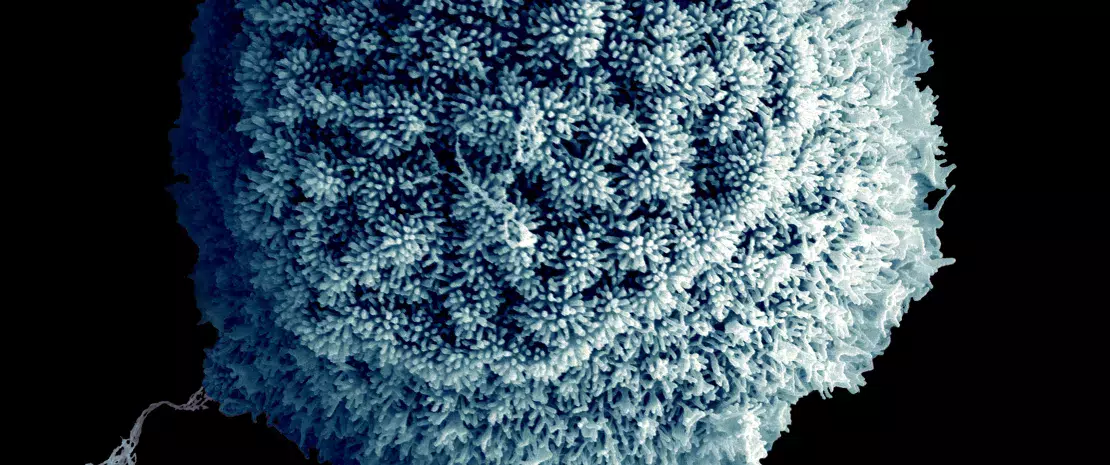The lingual microbiota, biomarker of pancreatic cancer?
The presence of pancreatic cancer is said to modify the bacterial composition of the lingual microbiota. This characteristic dysbiosis could lead to the development of new diagnostic tools.
Lay public section
Find here your dedicated section
Sources
This article is based on scientific information

About this article
Pancreatic cancer progresses silently and is diagnosed at a later stage, so much so that today it represents the seventh highest cause of death from cancer worldwide. The identification of specific biomarkers therefore turns out to be a public health priority, to ensure earlier management. The microbiotas and their dysbioses, common in cancer, represent in this regard an innovative research focus. A Chinese team examined the microbial characteristics of the tongues of pancreatic cancer patients. This original approach has its roots in traditional Chinese medicine, according to which the tongue reveals the pathophysiological condition of many organs and the progression of the disease.
Increased diversity in patients
The researchers characterized the bacterial populations of the lingual biofilms of 30 subjects with pancreatic head cancer, and of 25 healthy control subjects. Sequencing of 16S rRNA identified 158 (sidenote: Operational Taxonomic Unit groups of organisms usually not cultivated or not identified, classified on the basis of the similarity of the DNA sequencing of a given gene. Frequently used as an equivalent to the concept of species ) in the whole of the cohort, whose distribution proved to be linked to the subjects’ state of health. Pancreatic cancer was in fact accompanied by significantly greater microbial diversity (overabundance of 43 OTUs, including Leptotrichia, Fusobacterium, Rothia, Actinomyces, Corynebacterium, Atopobium, Peptostreptococcus, Catonella, Oribacterium, Filifactor, Campylobacter, Moraxella and Tannerella). Conversely, depletion of Haemophilus, Porphyromonas and Paraprevotella was observed in comparison with healthy subjects. This lingual dysbiosis is liable to impact the composition of the intestinal and pancreatic microbiotas via the bloodstream, promoting immune and inflammatory mechanisms associated to the development of cancer.
Towards an early diagnosis
The team noted that high concentrations of Leptotrichia and Fusobacterium, associated with low levels of Haemophilus and Porphyromonas, made it possible to distinguish between patients and persons in good health. In this respect, the researchers consider that the lingual microbiota could be a biomarker of pancreatic cancer. A basis for contemplating the development of tools that facilitate early diagnosis, even prevention of the disease. This hypothesis nevertheless will warrant confirmation on a larger scale and expansion of the analyses to include intestinal and salivary microorganisms of patients.






